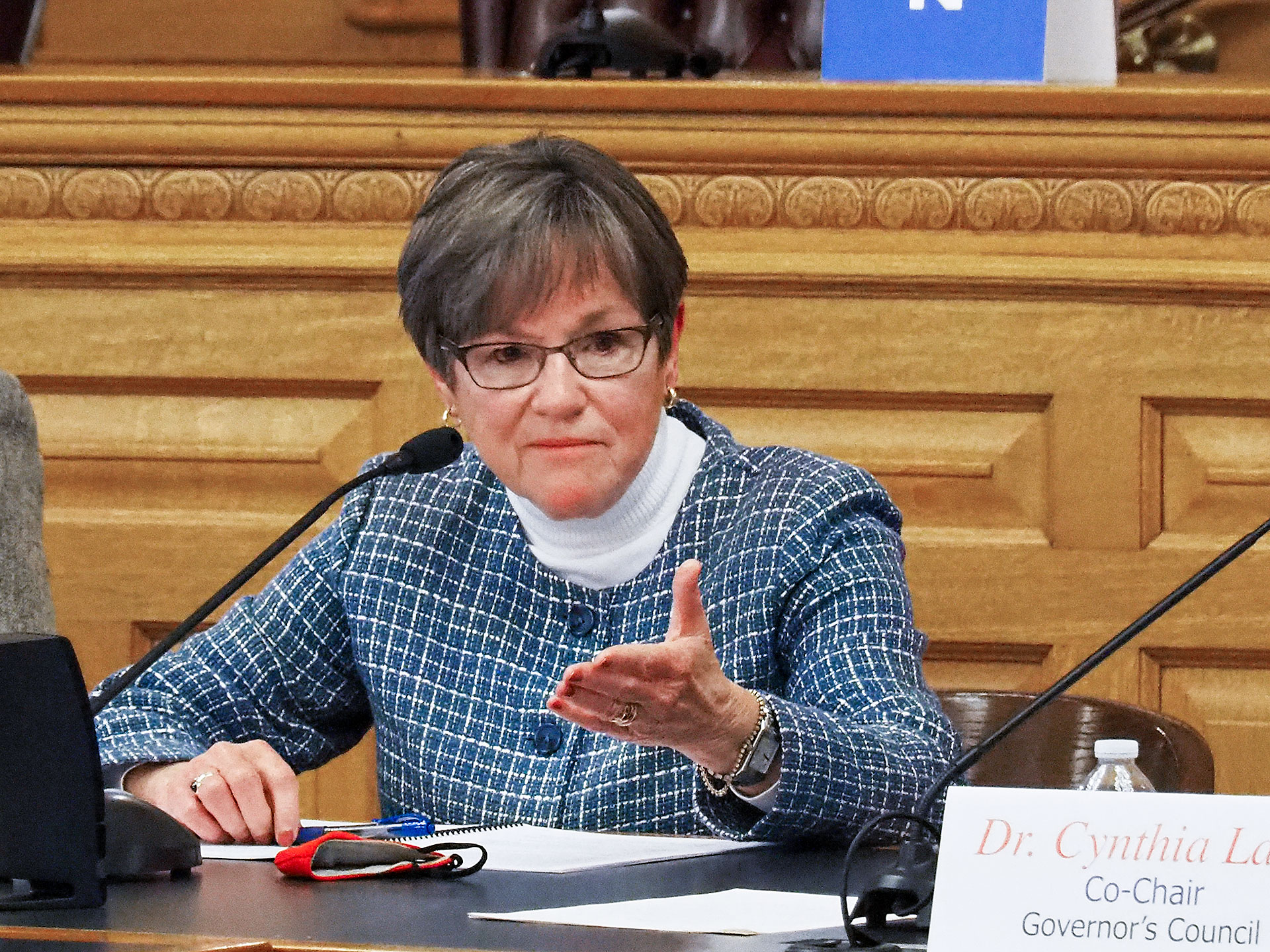National
Weddings continue, despite congressional scare
D.C. courthouse flooded with requests for marriage licenses

Same-sex marriages, including the March 14 union of Will Knicely and Bob Whitman, continued this week in D.C. despite efforts from one U.S. senator to stop the ceremonies. (DC Agenda photo by Michael Key)
U.S. Sen. Robert Bennett (R-Utah) has backed off pushing an amendment aimed at overturning D.C.’s same-sex marriage law — most likely because his Republican colleagues joined Senate Democrats in opposing his plan to attach it to an aviation bill, according to Capitol Hill insiders.
The amendment, which Bennett filed with the Senate clerk March 11, would have prohibited D.C. from issuing marriage licenses to same-sex couples until the city allows voters to decide the issue through a referendum or initiative.
Bennett’s unsuccessful attempt to advance the amendment came as nearly 700 couples have applied for a marriage license at the city’s Marriage Bureau since the same-sex marriage law took effect March 3. Most of those couples have been same-sex couples.
And according to a spokesperson for the D.C. Superior Court, which operates the Marriage Bureau, an unprecedented number of people applying for marriage licenses are requesting to be married in civil ceremonies offered free of charge at the courthouse.
“We have probably close to 400 weddings requested,” said spokesperson Leah Gurowitz. “Between two-thirds and three-quarters [of couples applying for marriage licenses] are requesting a wedding at the Marriage Bureau.
“So we’re getting them scheduled. We’re calling everybody and we’re trying to just use our space and our time as advantageously as possible.”
Gurowitz acknowledged that late last week, the Marriage Bureau’s phone answering system became overloaded, and some callers received messages that the voicemail boxes were full and incoming messages could not be left.
“It’s taking some time — a day or two — to return calls,” she said. “But we are returning all the calls and getting the weddings set as soon as possible.”
Although Bennett filed his D.C. marriage amendment last week, he did not formally introduce it before Senate Democrats and Republicans agreed by unanimous consent to an approved list of amendments for a Federal Aviation Administration authorization bill, the measure to which Benefit intended to attach his amendment.
The bipartisan-approved list doesn’t include his amendment, preventing him from bringing it up at this time.
Bennett’s office did not return calls seeking to determine why he did not offer the amendment before the list restricting new amendments was approved.
“I doubt that he just voluntarily withdrew his amendment,” said Daniel Penchina, a lobbyist with the Raben Group, a political consulting firm that works with LGBT rights groups.
“My guess is they were trying to put together a package of amendments that could be considered and they agreed that his would not be part of it,” Penchina said. “And someone in his party leadership called and said, ‘Why don’t you save this for another day?’ That’s me speculating, but that’s probably what happened.”
Max Gleishman, press secretary for Sen. Richard Durbin (D-Ill.), the Senate’s majority whip, said Senate Republicans clearly supported a consent agreement that did not include the Bennett amendment.
“So I’m not sure why it wasn’t offered,” Gleischman said. “But it was not. And so therefore we’ve locked in, through a consent agreement, a finite list of amendments. And that’s not one of the ones on the list.”
Bennett’s proposed amendment, which was published in the March 11 Congressional Record, is identical to a freestanding bill that he and seven other Republicans introduced Feb. 2. The bill’s stated purpose is “to protect the democratic process and the right of the people of the District of Columbia to define marriage.”
According to the Congressional Record, Sens. Sam Brownback (R-Kan.) and Roger Wicker (R-Miss.) joined Bennett in filing the amendment as a proposed attachment to the FAA authorization bill, which is being considered on the Senate floor. The authorization measure is being pushed by Senate Democratic leaders and is considered essential for continued operation of U.S. aviation related programs, including the nation’s air traffic control system.
Both the amendment and Bennett’s free-standing bill say, “Notwithstanding any other provision of law, including the District of Columbia Human Rights Act, the government of the District of Columbia shall not issue a marriage license to any couple of the same sex until the people of the District of Columbia have the opportunity to hold a referendum or initiative on the question of whether the District of Columbia should issue same-sex marriage licenses.”
Paul Strauss, who lobbies the U.S. Senate as an informal shadow senator on D.C.-related issues, said unconfirmed reports that Bennett was planning to introduce an amendment to block the city’s same-sex marriage law surfaced last week on Capitol Hill.
“It could potentially force an up or down vote on gay marriage,” Strauss said. “This is certainly something that Democrats and at least some Republicans want to avoid.”
D.C. gay activist Bob Summersgill, who has coordinated local efforts to persuade the city government to support same-sex marriage equality, said Bennett and other lawmakers opposed to the marriage law are likely to launch a stronger effort to overturn it later this year.
“What we have to be most worried about is the D.C. appropriations bill,” he said, which usually comes up before Congress in late summer or fall.
Summersgill noted that while many lawmakers object to attaching a D.C. gay marriage amendment to an aviation measure or other unrelated bills, they would likely go along with attaching such an amendment to the city’s annual appropriations bill, which specifically addresses D.C. issues.
“It will be germane on that bill,” he said.
But as Bennett backed down on his marriage amendment, the National Organization for Marriage, which campaigns against same-sex marriage laws throughout the country, appeared to inject the gay marriage issue into the city’s upcoming mayoral election campaign.
Several local activists reported being contacted by an automated telephone poll on the D.C. gay marriage law that identified NOM as its sponsor. The activists said a recorded message stated that Mayor Adrian Fenty supports “gay marriage” and at least one of his lesser-known opponents in the 2010 mayoral race, former D.C. television news reporter Leo Alexander, opposes it.
D.C. resident Kevin Keller, who was among the people contacted for the phone poll, said it was obvious to him that the call was intended to stir up opposition to same-sex marriage rather than obtain an impartial assessment of how residents feel about the issue.
“I called Alexander’s campaign office, and we spoke,” Keller told DC Agenda. “He told me he opposes gay marriage on religious grounds, but he said he is not directly associated with the NOM.”
NOM executive director Brian Brown did not immediately return DC Agenda’s call on the matter. Local same-sex marriage opponents have vowed to work to defeat Fenty, who signed the same-sex marriage bill, and 11 of the 13-member City Council who voted for the bill when it passed in December.
But political observers say no serious candidates opposing gay marriage have surfaced so far to run against Fenty. And just a few people, whose chances are viewed as questionable, have emerged to run against Council members who voted for the marriage measure.
Alexander, who announced his candidacy in September, has raised less than $4,000 for his mayoral campaign, according to records filed with the D.C. Office of Campaign Finance. Records from the office also show that Fenty has raised more than $3 million for his re-election campaign.
D.C. Council Chair Vincent Gray (D-At Large), who has said he is considering running for mayor and is considered a viable candidate, voted for the marriage bill and, like Fenty, has been an outspoken supporter of same-sex marriage equality.
Another possible candidate for mayor, millionaire developer R. Donahue Peebles, has vowed to spend $5 million of his own money should he enter the mayoral race, making him a potentially serious contender. A Peebles spokesperson did not immediately return a DC Agenda call seeking to learn Peebles’ position on same-sex marriage.
Some reports have surfaced that he supports same-sex marriage but also favors a referendum or initiative to allow voters to decide the issue, but the reports could not be confirmed.
As developments surrounding the D.C. marriage law continue to unfold, many activists have said the joy experienced by the dozens of same-sex couples who have married or obtained marriage licenses so far has overshadowed the controversial aspects of the law.
Rev. Dwayne Johnson, pastor of the Metropolitan Community Church of Washington, which has a mostly gay congregation, said the church’s first same-sex wedding held March 14 had a profound impact on the more than 250 people in attendance.
Will Knicely and Bob Whitman, who have been together for more than 10 years and are MCC members, exchanged wedding vows as the church’s highly acclaimed chorus sang “Oh Happy Day,” said Johnson, who co-performed the wedding.
“I don’t think any of us were prepared for the emotion we witnessed,” he said. “It was like 39 years of hope culminating at that moment. People were applauding and applauding. We just let it go.”
U.S. Supreme Court
US Supreme Court rules Idaho to enforce gender care ban
House Bill 71 signed in 2023


BY MIA MALDONADO | The U.S. Supreme Court has allowed Idaho to enforce House Bill 71, a law banning Idaho youth from receiving gender-affirming care medications and surgeries.
In an opinion issued Monday, the U.S. Supreme Court granted the state of Idaho’s request to stay the preliminary injunction, which blocked the law from taking effect. This means the preliminary injunction now only applies to the plaintiffs involved in Poe v. Labrador — a lawsuit brought on by the families of two transgender teens in Idaho who seek gender-affirming care.
Monday’s Supreme Court decision enforces the gender-affirming care ban for all other trans youth in Idaho as the lawsuit remains ongoing in the Ninth Circuit Court of Appeals.

The American Civil Liberties Union and the ACLU of Idaho, both of whom represent the plaintiffs, said in a press release Monday that the ruling “does not touch upon the constitutionality” of HB 71. The groups called Monday’s ruling an “awful result” for trans Idaho youth and their families.
“Today’s ruling allows the state to shut down the care that thousands of families rely on while sowing further confusion and disruption,” the organizations said in the press release. “Nonetheless, today’s result only leaves us all the more determined to defeat this law in the courts entirely, making Idaho a safer state to raise every family.”
Idaho Attorney General Raúl Labrador in a press release said the state has a duty to protect and support all children, and that he is proud of the state’s legal stance.
“Those suffering from gender dysphoria deserve love, support and medical care rooted in biological reality,” Labrador said. “Denying the basic truth that boys and girls are biologically different hurts our kids. No one has the right to harm children, and I’m grateful that we, as the state, have the power — and duty — to protect them.”
Recap of Idaho’s HB 71, and what led to SCOTUS opinion
Monday’s Supreme Court decision traces back to when HB 71 was signed into law in April 2023.
The law makes it a felony punishable for up to 10 years for doctors to provide surgeries, puberty-blockers and hormones to trans people under the age of 18. However, gender-affirming surgeries are not and were not performed among Idaho adults or youth before the bill was signed into law, the Idaho Capital Sun previously reported.
One month after it was signed into law, the families of two trans teens sued the state in a lawsuit alleging the bill violates the 14th Amendment’s guarantee of equal protection under the law.
In late December, just days before the law was set to take effect in the new year, U.S. District Judge B. Lynn Winmill blocked the law from taking effect under a preliminary injunction. In his decision, he said he found the families likely to succeed in their challenge.
The state of Idaho responded by appealing the district court’s preliminary injunction decision to the Ninth Circuit, to which the Ninth Circuit denied. The state of Idaho argued the court should at least enforce the ban for everyone except for the plaintiffs.
After the Ninth Circuit’s denial, the Idaho Attorney General’s Office in February sent an emergency motion to the U.S. Supreme Court, the Idaho Press reported. Monday’s U.S. Supreme Court decision agrees with the state’s request to enforce its ban on trans health care for minors, except for the two plaintiffs.
******************************************************************************************

Mia Maldonado joined the Idaho Capital Sun after working as a breaking news reporter at the Idaho Statesman covering stories related to crime, education, growth and politics. She previously interned at the Idaho Capital Sun through the Voces Internship of Idaho, an equity-driven program for young Latinos to work in Idaho news. Born and raised in Coeur d’Alene, Mia moved to the Treasure Valley for college where she graduated from the College of Idaho with a bachelor’s degree in Spanish and international political economy.
******************************************************************************************
The preceding piece was previously published by the Idaho Capital Sun and is republished with permission.
The Idaho Capital Sun is the Gem State’s newest nonprofit news organization delivering accountability journalism on state politics, health care, tax policy, the environment and more.
We’re part of States Newsroom, the nation’s largest state-focused nonprofit news organization.
Kansas
Kansas governor vetoes ban on health care for transgender youth
Republican lawmakers have vowed to override veto


BY TIM CARPENTER | Gov. Laura Kelly flexed a veto pen to reject bills Friday prohibiting gender identity health care for transgender youth, introducing a vague crime of coercing someone to have an abortion and implementing a broader survey of women seeking abortion that was certain to trigger veto override attempts in the Republican-led House and Senate.
The decisions by the Democratic governor to use her authority to reject these health and abortion rights bills didn’t come as a surprise given her previous opposition to lawmakers intervening in personal decisions that she believed ought to remain the domain of families and physicians.
Kelly said Senate Bill 233, which would ban gender-affirming care for trans minors in Kansas, was an unwarranted attack on a small number of Kansans under 18. She said the bill was based on a politically distorted belief the Legislature knew better than parents how to raise their children.
She said it was neither a conservative nor Kansas value to block medical professionals from performing surgery or prescribing puberty blockers for their patients. She said stripping doctors of their licenses for serving health interests of patients was wrong. Under the bill, offending physicians could be face lawsuits and their professional liability insurance couldn’t be relied on to defend themselves in court.
“To be clear, this legislation tramples parental rights,” Kelly said. “The last place that I would want to be as a politician is between a parent and a child who needed medical care of any kind. And, yet, that is exactly what this legislation does.”
Senate President Ty Masterson (R-Andover) and House Speaker Dan Hawkins (R-Wichita) responded to the governor by denouncing the vetoes and pledging to seek overrides when legislators returned to the Capitol on April 26. The trans bill was passed 27-13 in the Senate and 82-39 in the House, suggesting both chambers were in striking distance of a two-thirds majority necessary to thwart the governor.
“The governor has made it clear yet again that the radical left controls her veto pen,” Masterson said. “This devotion to extremism will not stand, and we look forward to overriding her vetoes when we return in two weeks.”
Cathryn Oakley, senior director of the Human Rights Campaign, said the ban on crucial, medically necessary health care for trans youth was discriminatory, designed to spread dangerous misinformation and timed to rile up anti-LGBTQ activists.
“Every credible medical organization — representing over 1.3 million doctors in the United States — calls for age-appropriate, gender-affirming care for transgender and nonbinary people,” Oakley said. “This is why majorities of Americans oppose criminalizing or banning gender-affirming care.”
Abortion coercion
Kelly also vetoed House Bill 2436 that would create the felony crime of engaging in physical, financial or documentary coercion to compel a girl or woman to end a pregnancy despite an expressed desire to carry the fetus to term. It was approved 27-11 in the Senate and 82-37 in the House, again potentially on the cusp of achieving a veto override.
The legislation would establish sentences of one year in jail and $5,000 fine for those guilty of abortion coercion. The fine could be elevated to $10,000 if the adult applying the pressure was the fetuses’ father and the pregnant female was under 18. If the coercion was accompanied by crimes of stalking, domestic battery, kidnapping or about 20 other offenses the prison sentence could be elevated to 25 years behind bars.
Kelly said no one should be forced to undergo a medical procedure against their will. She said threatening violence against another individual was already a crime in Kansas.
“Additionally, I am concerned with the vague language in this bill and its potential to intrude upon private, often difficult, conversations between a person and their family, friends and health care providers,” the governor said. “This overly broad language risks criminalizing Kansans who are being confided in by their loved ones or simply sharing their expertise as a health care provider.”
Hawkins, the House Republican leader, said coercion was wrong regardless of the circumstances and Kelly’s veto of the bill was a step too far to the left.
“It’s a sad day for Kansas when the governor’s uncompromising support for abortion won’t even allow her to advocate for trafficking and abuse victims who are coerced into the procedure,” Hawkins said.
Emily Wales, president and CEO of Planned Parenthood Great Plains Votes, said HB 2436 sought to equate abortion with crime, perpetuate false narratives and erode a fundamental constitutional right to bodily autonomy. The bill did nothing to protect Kansas from reproductive coercion, including forced pregnancy or tampering with birth control.
“Planned Parenthood Great Plains Votes trusts patients and stands firmly against any legislation that seeks to undermine reproductive rights or limit access to essential health care services,” Wales said.
Danielle Underwood, spokeswoman for Kansas for Life, said “Coercion Kelly” demonstrated with this veto a lack of compassion for women pushed into an abortion.
The abortion survey
The House and Senate approved a bill requiring more than a dozen questions be added to surveys of women attempting to terminate a pregnancy in Kansas. Colorful debate in the House included consideration of public health benefits of requiring interviews of men about reasons they sought a vasectomy birth control procedure or why individuals turned to health professionals for treatment of erectile dysfunction.
House Bill 2749 adopted 81-39 in the House and 27-13 in the Senate would require the Kansas Department of Health and Environment to produce twice-a-year reports on responses to the expanded abortion survey. The state of Kansas cannot require women to answer questions on the survey.
Kelly said in her veto message the bill was “invasive and unnecessary” and legislators should have taken into account rejection in August 2022 of a proposed amendment to the Kansas Constitution that would have set the stage for legislation further limiting or ending access to abortion.
“There is no valid medical reason to force a woman to disclose to the Legislature if they have been a victim of abuse, rape or incest prior to obtaining an abortion,” Kelly said. “There is also no valid reason to force a woman to disclose to the Legislature why she is seeking an abortion. I refuse to sign legislation that goes against the will of the majority of Kansans who spoke loudly on Aug. 2, 2022. Kansans don’t want politicians involved in their private medical decisions.”
Wales, of Planned Parenthood Great Plains Votes, said the bill would have compelled health care providers to “interrogate patients seeking abortion care” and to engage in violations of patient privacy while inflicting undue emotional distress.
Hawkins, the Republican House speaker, said the record numbers of Kansas abortions — the increase has been driven by bans or restrictions imposed in other states — was sufficient to warrant scrutiny of KDHE reporting on abortion. He also said the governor had no business suppressing reporting on abortion and criticized her for tapping into “irrational fears of offending the for-profit pro-abortion lobby.”
******************************************************************************************

Tim Carpenter has reported on Kansas for 35 years. He covered the Capitol for 16 years at the Topeka Capital-Journal and previously worked for the Lawrence Journal-World and United Press International.
The preceding story was previously published by the Kansas Reflector and is republished with permission.
******************************************************************************************
The Kansas Reflector is a nonprofit news operation providing in-depth reporting, diverse opinions and daily coverage of state government and politics. This public service is free to readers and other news outlets. We are part of States Newsroom: the nation’s largest state-focused nonprofit news organization, with reporting from every capital.
Colorado
Five transgender, nonbinary ICE detainees allege mistreatment at Colo. detention center
Advocacy groups filed complaint with federal officials on April 9

Five transgender and nonbinary people who are in U.S. Immigration and Customs Enforcement custody at a privately-run detention center in Colorado say they continue to suffer mistreatment.
The Rocky Mountain Immigrant Advocacy Network, the National Immigration Project and the American Immigration Council on April 9 filed a complaint with the Department of Homeland Security’s Offices for Civil Rights and Civil Liberties, Immigration Detention Ombudsman and Inspector General and ICE’s Office of Professional Responsibility on behalf of the detainees at the Aurora Contract Detention Facility near Denver.
Charlotte, one of the five complainants, says she spends up to 23 hours a day in her room.
She says in the complaint that a psychiatrist has prescribed her medications for anxiety and depression, but “is in the dark about her actual diagnoses because they were not explained to her.” Myriah and Elsa allege they do not have regular access to hormones and other related health care.
Omar, who identifies as trans and nonbinary, in the complaint alleges they would “start hormone replacement therapy if they could be assured that they would not be placed in solitary confinement.” Other detainees in the complaint allege staff have also threatened to place them in isolation.
“They have been told repeatedly that, if they started therapy, they would be placed in ‘protective custody’ (solitary confinement) because the Aurora facility has no nonbinary or men’s transgender housing unit,” reads the complaint. “This is so, despite other trans men having been detained in Aurora in the past, so Omar is very likely receiving misinformation that is preventing them from accessing the treatment they require.”
Omar further alleges staffers told them upon their arrival that “they had to have a ‘boy part’ (meaning a penis) to be assigned to” the housing unit in which other trans people live. Other complainants say staff have also subjected them to degrading comments and other mistreatment because of their gender identity.
“Victoria, Charlotte and Myriah are all apprehensive about a specific female guard who is assigned to the housing unit for transgender women at Aurora,” reads the complaint. “Victoria has experienced this guard peering at her through the glass on the door of her form. Charlotte, Myriah and the other women in her dorm experienced the same guard making fun of them after they complained that she had confiscated all of their personal hygiene products, like their toothbrushes and toothpaste, and replaced them with menstrual pads and tampons, which she knows they do not need.”
“She said something to them like, ‘If you were real women, you would need these things,'” reads the complaint. “The same guard told them that they had to ask her for their personal hygiene products when they wanted to use them, stripping them of their most basic agency.”
Victoria, who has been in ICE custody for more than two years, also says she does not have regular access to hormones. Victoria further claims poor food, lack of access to exercise and stress and anxiety because of her prolonged detention has caused has made her health deteriorate.
The GEO Group, a Florida-based company, operates the Aurora Contract Detention Facility.
Advocates for years have complained about the conditions for trans and nonbinary people in ICE custody and have demanded the agency release all of them.
Roxsana Hernández, a trans Honduran woman with HIV, on May 25, 2018, died in ICE custody in New Mexico. Her family in 2020 sued the federal government and the five private companies who were responsible for her care.
Johana “Joa” Medina Leon, a trans Salvadoran woman, on June 1, 2019, passed away at a Texas hospital four days after her release from ICE custody. Kelly González Aguilar, a trans Honduran woman, had been in ICE custody for more than two years until her release from the Aurora Contract Detention Center on July 14, 2020.
ICE spokesperson Steve Kotecki on Friday told the Blade there were 10 “self-identified transgender detainees” at the Aurora Contract Detention Center on April 11. The facility’s “transgendered units” can accommodate up to 87 trans detainees.
A 2015 memorandum then-ICE Executive Associate Director of Enforcement and Removal Operations Thomas Homan signed requires personnel to allow trans detainees to identify themselves based on their gender identity on data forms. The directive, among other things, also contains guidelines for a “respectful, safe and secure environment” for trans detainees and requires detention facilities to provide them with access to hormone therapy and other trans-specific health care.
“U.S. Immigration and Customs Enforcement (ICE) is committed to ensuring that all those in its custody reside in safe, secure and humane environments,” said Kotecki. “ICE regularly reviews each case involving self-identified transgender noncitizens and determines on a case-by-case basis whether detention is warranted.”
The complaint, however, states this memo does not go far enough to protect trans and nonbinary detainees.
“ICE’s 2015 guidance has some significant flaws,” it reads. “It fails to provide meaningful remedies for policy violations. It does not acknowledge the challenges that nonbinary people face when imprisoned by ICE and the lack of such guidance explains why the needs of nonbinary people are largely misunderstood and unmet.”
“Further, the language used to describe people who are TNB is not inclusive and does not reflect terminology adopted by the community it is meant to describe,” adds the complaint. “Although this list is not exhaustive, it addresses some of the primary concerns voiced by the complaints.”
-

 Africa2 days ago
Africa2 days agoCongolese lawmaker introduces anti-homosexuality bill
-

 Colorado4 days ago
Colorado4 days agoFive transgender, nonbinary ICE detainees allege mistreatment at Colo. detention center
-

 Politics4 days ago
Politics4 days agoFirst lady warns Trump is ‘dangerous to the LGBTQ community’ at HRC event
-

 Books4 days ago
Books4 days agoNew book offers observations on race, beauty, love












